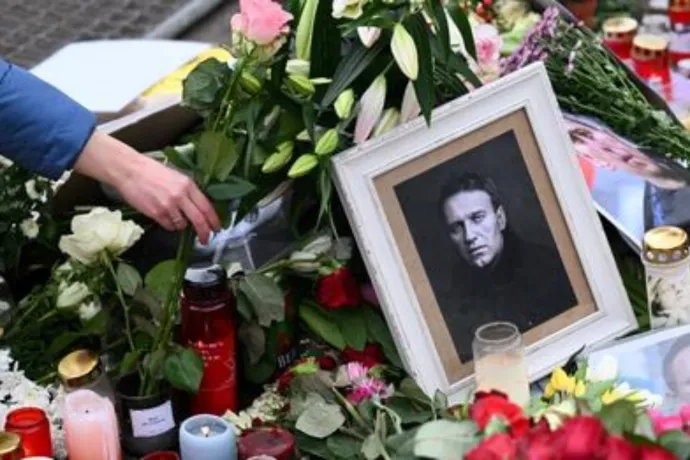Even the Serbian President reacted to the news of Navalny's death, but Orbán and Szijjártó did not

In all EU Member States, in neighbouring Ukraine and even in Serbia, which is strongly sympathetic to Russia, leading politicians reacted almost immediately to the news of Alexei Navalny's death. In Hungary, there was only one reaction from a governing party: that of Zsolt Németh, Chairman of the Parliament's Foreign Affairs Committee.
Russian President Vladimir Putin's most vocal critic died on 16 February in one of Russia's most heavily guarded prisons, near the Arctic Circle. After two days of total silence, the only reaction from the governing party came on 18 February, from Zsolt Németh. As Chairman of the Parliamentary Foreign Affairs Committee, he briefly noted on his Facebook page that
"Navalny's death is the scandal of our time!"
We have sent questions to both Prime Minister Viktor Orbán and Foreign Minister Péter Szijjártó, but so far neither has reacted to the news of Navalny's death. The soon-to-be interim President of the Republic, László Kövér, has not said anything about the news either.
Even the President of Serbia, who has good relations with Russia, has spoken out on the matter. Aleksandar Vucic said that he was "not an investigator" and therefore did not want to go into details about the circumstances of Navalny's death. He added that after the incident, Serbia is likely to come under greater pressure to introduce sanctions against Russia, as other European countries have done.
Unlike leading Hungarian politicians, however, even the pro-Putin Vucic was able to say that "it is tragic when such a young man loses his life".
The President of Ukraine, at war with Russia, Volodymyr Zelensky, says it is clear as day that Putin effectively killed Navalny. Zelensky signed a bilateral security agreement with German Chancellor Olaf Scholz on 16 February, the very day the jailed Russian opposition politician died. At their joint press conference, the Ukrainian president said:
"It is obvious that Putin killed him."
Zelensky also said that Putin was only interested in keeping his position, not in who dies because of it.
At the press conference, German Chancellor Olaf Scholz first commented on the news of Navalny's death, saying that it was "very probably true". He added:
"This is something very sad. I met Navalny here in Berlin when he was in Germany trying to recover from his poisoning attack. I also talked to him about the courage it takes to go back to his country. He probably paid for that courage with his life."
As the article in the 444 website reveals, among the EU member states only the members of the Hungarian government did not react to the news of the death of the Russian opposition politician and activist. Foreign ministers, heads of state or government of 26 EU countries reacted.
For example, Austrian Federal President Alexander Van der Bellen, similarly to Zelensky, stressed Putin's responsibility for the incident:
"I was shocked by the news of Alexei Navalny's death. Vladimir Putin and his murderous regime are responsible for this. My sympathies go out to Alexei Navalny's relatives and to those who will continue to fight bravely for freedom, democracy and human rights in Russia."
Romanian President Klaus Johannis also expressed his condolences to Navalny's family and friends on X, while urging Russia to launch a transparent and thorough investigation into the case.
The importance of a proper investigation into the case was also stressed by Slovak Prime Minister Robert Fico, who said that "the death of a politician or political prisoner in prison always raises doubts".
The Croatian Foreign Ministry also reacted by saying that the circumstances of the death of the Russian opposition activist must be clarified. Regarding Navalny, they wrote,
"he dedicated his entire life to the tireless struggle for freedom and democracy".
Slovenia's foreign minister was also shocked by the news and called for an investigation into the circumstances that may have led to Navalny's death. "His fight for freedom and democracy will live on forever," Tanja Fajon said in an X-post.
For more quick, accurate and impartial news from and about Hungary, subscribe to the Telex English newsletter!